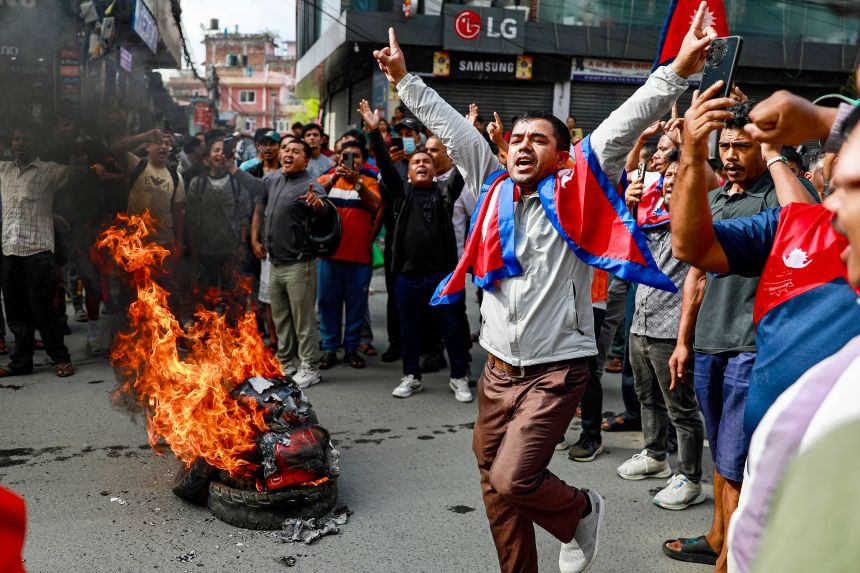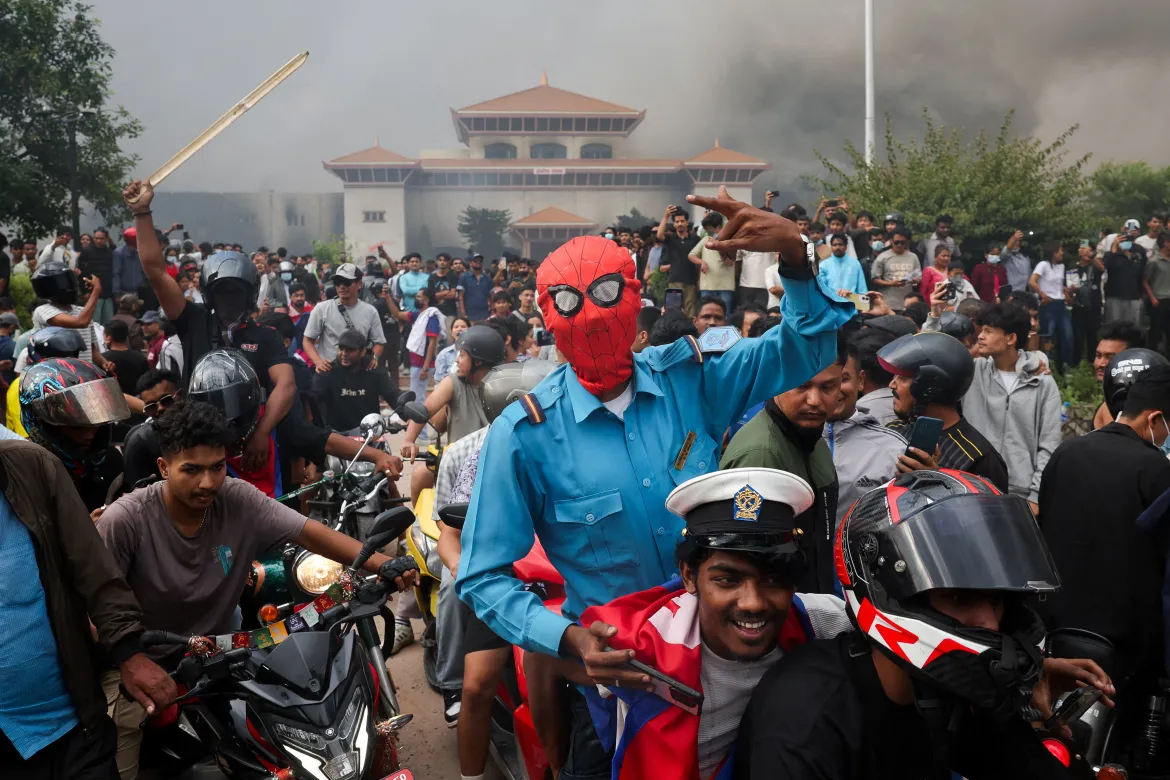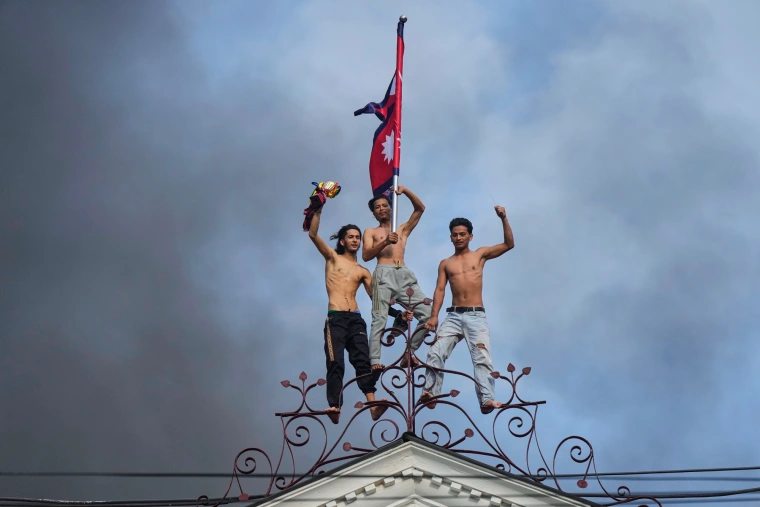A Government Overthrown & riots in the Streets: An interview with a student living through the Nepal Protests
Last week Nepal’s government was overthrown and parliament building set ablaze as anti-corruption protests reached a decisive climax. A growing online anti-government sentiment and outrage over the corruption of elected officials finally caused protestors in Nepal to take to the streets following a broad social media ban.
On Monday the protests turned violent as riot police opened fire on protestors, killing 19 people, many of them teenagers and students. Furious at this, thousands marched on the streets on Tuesday to riot and protest. Dozens of buildings such as the parliament and government officials' homes were ransacked and burnt, and after a day of chaos the prime minister resigned and Nepal was left leaderless. To investigate the effects of this further and gain perspective from young people living there I have interviewed Josef Selmeci, a former East-West student and resident of four years in Kathmandu, Nepal.
To begin the interview I asked if his family was okay, and what it was like living through the riots. He replied that “My family is safe.” and that all his friends were alright. He said he hadn’t participated in the protests, although many of his Nepali friends were outraged and discussed attending. However, none of them did because the protests had grown too “violent and dangerous”. He explained the whole ordeal was completely surreal and that it all happened so quickly. He described how it was worrying when the police became violent and a curfew was placed upon the city. Josef said “Something that struck me was when I found out on Monday after school that 19 kids my age, school students, were being killed.” He explained how different it feels experiencing history firsthand rather than just reading about it and how it’s made him “rethink how I thought of protests in other places, I may look at the news, I may feel for the people and understand them. But I’m not even in that country.” It is something to consider how you don’t truly feel for or understand others until you experience what they do.

When asked about what the old government was like and why people were so resentful of them he said it was because Nepal has a huge problem with corruption, where “these elites are skimming money from the people.” Even in the months and years leading up to the protest people in Nepal were very vocal about it, from students at school to taxi drivers on the street. Josef said that protests were common because Nepali people “have a passion for this stuff” and their country. I asked if this unrest had been building up over time and he said no, it was extremely quick and hectic. He stated “What gives you the right to shut off all social media programmes, and then when people protest against that, not protesting against the social media ban, per se, but against the corruption, you shoot 19 kids?” Josef said the government's actions were “completely outrageous” and that this one of the reasons it all happened so quickly and violently, coming in “like a tsunami” as people took to the streets to fight the riot police and government following Monday. He is impressed that people were mainly protesting the corruption rather than the social media ban, and that it is commonly believed that social media was blocked to prevent people sharing and talking about the corruption online.

When I asked him if he believed that what the protests did was a good thing and something he agreed with he said “the change was necessary” and that his friends and Gen Z protestors all agreed that the change was required and that it was “very good.” People have been unhappy with the government for so long somebody new needed to be in power. He said many people, himself included, felt satisfaction when the old establishment was torn down. However, Josef also said he believes the protestors were hijacked by bad actors who wanted to cause as much damage as possible. He thinks that the common majority of people “had no intention to cause this much destruction.” As important infrastructure and critical documents were damaged in the chaos. He believes that while the overthrowing of the government was necessary the protests got out of hand and destroyed too much. An example of this is that some schools were burnt down in the riots, and that people took advantage of the police’s distraction to break into a prison there and release many criminals onto the streets. Josef and his friends feared that his school would be targeted by protestors, as a nearby one was set on fire.
Josef believes that the future looks positive for Nepal, with the Gen Z protestors bringing “a new type of outlook” and have really stepped forward to make a change in their society. He says many of his friends share this sentiment, supporting the protests. When he looked out on his street people drove past waving Nepali flags and celebrating. He says the people in Nepal have hope, and that good things are on the way. Just recently a new Prime Minister took power who will oversee proper elections in March where people will be able to decide their own future free of the previous government.

At the end of the protests, more than 70 people had died and thousands more injured. Dozens of government buildings and key infrastructure sites had been damaged and burned. The parliament was destroyed and the previous prime minister and his cabinet resigned.
The people of Nepal now sweep the streets of ash and rubble. Over the internet, in the new government, young people, and old people work together to build something brighter out of years of corruption and resentment. In only a few short days Nepal has completely changed and its future remains uncertain, but all throughout the country people like Josef have hope that things will get better.
Note: This interview has been summarised and edited for readability.
